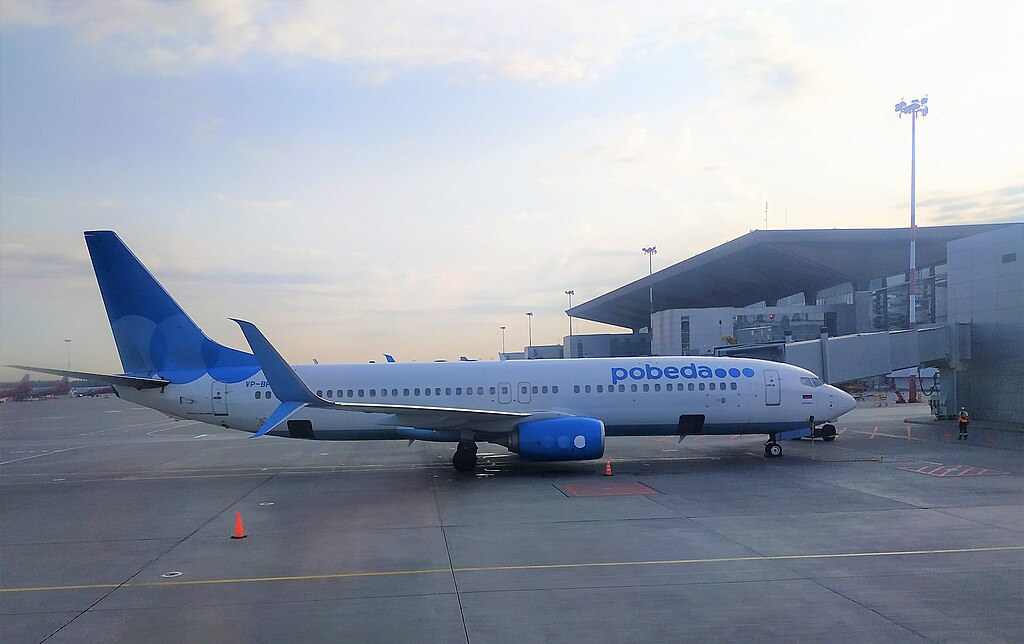With billions of euro in aircraft stranded in post-invasion Russia, Dublin’s High Court has become the global battleground for aviation finance. The settlements mark a key moment for Ireland’s world-leading leasing sector — and a warning shot for future geopolitical risk
 Boeing 737-800 Pobeda Airlines at Pulkovo Airport (Saint Petersburg) in 2021 (image by Refrescool on Wikimedia Commons)
Boeing 737-800 Pobeda Airlines at Pulkovo Airport (Saint Petersburg) in 2021 (image by Refrescool on Wikimedia Commons)A LONG-RUNNING legal saga involving Irish-based aircraft leasing firms and insurers over planes stranded in Russia is nearing resolution, with most outstanding claims now close to settlement. The high-profile litigation has drawn renewed attention to the aviation sector’s exposure to geopolitical risk — and highlighted something most people outside the industry are unaware of: Ireland’s has a pre-eminent role in the global aircraft leasing market.
In essence, aircraft leasing is akin to car leasing, but on a global, high-stakes scale. Irish companies typically purchase aircraft from manufacturers like Boeing and Airbus, then lease them to airlines around the world. Rather than buying planes outright, airlines lease aircraft to reduce upfront costs and manage fleet flexibility. Many of the world’s largest lessors — including fourteen of the top fifteen, according to IDA Ireland — are based in, or have operations in, the Republic.
Thanks to a combination of favourable tax arrangements, deep expertise, and a well-established regulatory framework, more than half of the world’s leased commercial aircraft are managed from Ireland. Dublin’s role as a nerve centre of aviation finance has made it the de facto legal venue for many of the industry’s most complex disputes.
One such dispute arose following Russia’s invasion of Ukraine in early 2022. Sanctions imposed by the EU and others required Western aircraft lessors to terminate leasing contracts with Russian airlines. However, Russia declined to return many of the planes, which remained within its borders. Efforts to reclaim the aircraft through negotiation failed, prompting lessors to pursue compensation via insurance claims — a process that, in many cases, played out in the Irish courts.
As of April 2025, industry estimates suggest that around 400 Western-owned aircraft — collectively worth approximately $10 billion — remain in Russia. The aircraft were originally leased to Russian airlines including Aeroflot. According to aviation analysts, many of the planes have since been re-registered in Russia without the consent of their owners. The exact locations of the aircraft are not officially disclosed, but they are thought to be based at major hubs such as Moscow’s Sheremetyevo or St. Petersburg’s Pulkovo.
A number of legal claims have already been resolved. As first reported by Reuters, Irish-headquartered Avolon reached a commercial resolution with its insurers in February 2025, bringing an end to a claim worth approximately €200 million. According to the same report, other Dublin-based lessors are now finalising agreements of their own.
Court filings and industry sources suggest the outstanding Irish cases — which collectively sought up to €2.5 billion in compensation — could conclude this month (April 2025), barring unforeseen developments.
The litigation has not only tested the limits of insurance policies written before the full-scale invasion, but also revealed how events in one part of the world can send financial shockwaves through the global leasing system. It is also likely to shape how future leasing contracts are underwritten, particularly in terms of political risk.
While it remains uncertain whether many of the stranded aircraft will ever be recovered, the outcomes of these cases will inform how insurers assess risk — and further cement Dublin’s role as the international courtroom of record for the aircraft leasing sector.

